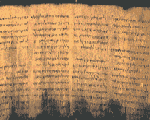




The Conference on Facilitating the Entry into Force of the Comprehensive Nuclear-Test Ban Treaty was held at the United Nations in New York from 11 November 2001 to 13 November 2001. The conference must be convened pursuant to Article XIV, Paragraph 3 of the Treaty that stipulates if the CTBT has not entered into force three years after its opening for signatures (24 September 1996), the Depository will hold a conference to determine the extent to which efforts have been made to bring the treaty into force and programs could facilitate the treaty's entry into force. On 11 November the conference elected Miguel Marin Bosch of Mexico as its President. The conference continued to urge the entry into force of the CTBT, the importance of the Treaty in nuclear disarmament as a means of achieving global security and amplauded the measures taken to create an international monitoring system.
This is the second Conference on Facilitating the Entry into Force of the Comprehensive Nuclear-Test-Ban Treaty held since the Treaty opened for signatures and ratification in September of 1996. The conference approved a Final Declaration and Report of the Conference (This document is best viewed with Adobe Acrobat 5.0), which was adopted through consensus on 13 November 2001.
Some of the key points of the Final Declaration was the reaffirmation in Section 2 of the "strong determination to enhance international peace and security throughout the world" and "the importance of a universal and internationally and effectively verifiable comprehensive nuclear-test-ban treaty as a major instrument in the field of nuclear disarmament and non-proliferation in all its aspects." The Conference felt that the primary means to achieve disarmament and non-proliferation is the cessation of all nuclear explosions, both weapon tests and peaceful nuclear explosions. In Section 11 of the Final Declaration the Conference recognized "the progress in building the global infrastructure for Treaty verification, including the International Monitoring System." The Conference called upon all nuclear weapons states to continue their moratorium on nuclear-weapon test explosions and urged the nuclear-weapons states, that have either not signed or ratified the Treaty to accelerate the signature or ratification process.
An issue that appears to be at the forefront of prohibiting the entry into force of the CTBT is verification of compliance. Some of the Annex II states that have not ratified the treaty claim they cannot submitt their articles of ratification because the treaty is not verifiable or that sufficient progress has not been made to create a verification regime. In the Russian Federation's statement to the review conference H.E. Igor D. Sergeev proposed "considering the possibility to develop additional verification measures for nuclear test ranges going far beyond the Tryeat provisions." Mr. Sergeev suggested the exchange of geological data, the installation of additional sensors and other measures.
The United States of America did not send any representative, official or unofficial to participate in the conference even though it is a signatory of the CTBT. Though the United States to make a statement in the General Assembly 1st Committee prior to the conferring of the conference. However, at an 11 November 2001 press briefing on the CTBT Mr. Bosch (the President of the Conference from Mexico), when asked about the realistic possibility of the CTBT going forward without the United States, he responded by stating that these things generally work out and that "if you keep up the pressure on the United States, I believe they will come around."
The Conference was attended by the following states with Instruments of Ratification submitted:
States in Bold have ratified the CTBT
The following links are statements made by the respective countries during the CTBT Review Conference. Some of the Statements have been translated and are not official nor conducted by FAS. FAS is not responsible for any errors in the translations
The following states attended as non-signatories of the Treaty
| Barbados | Cameroon | Central African Republic | Cuba | Iraq | Libyan Arab Jamahiriya | Pakistan | Saudi Arabia |
| Sudan |
Special Agencies and IGO's:
Observer Status Participants
